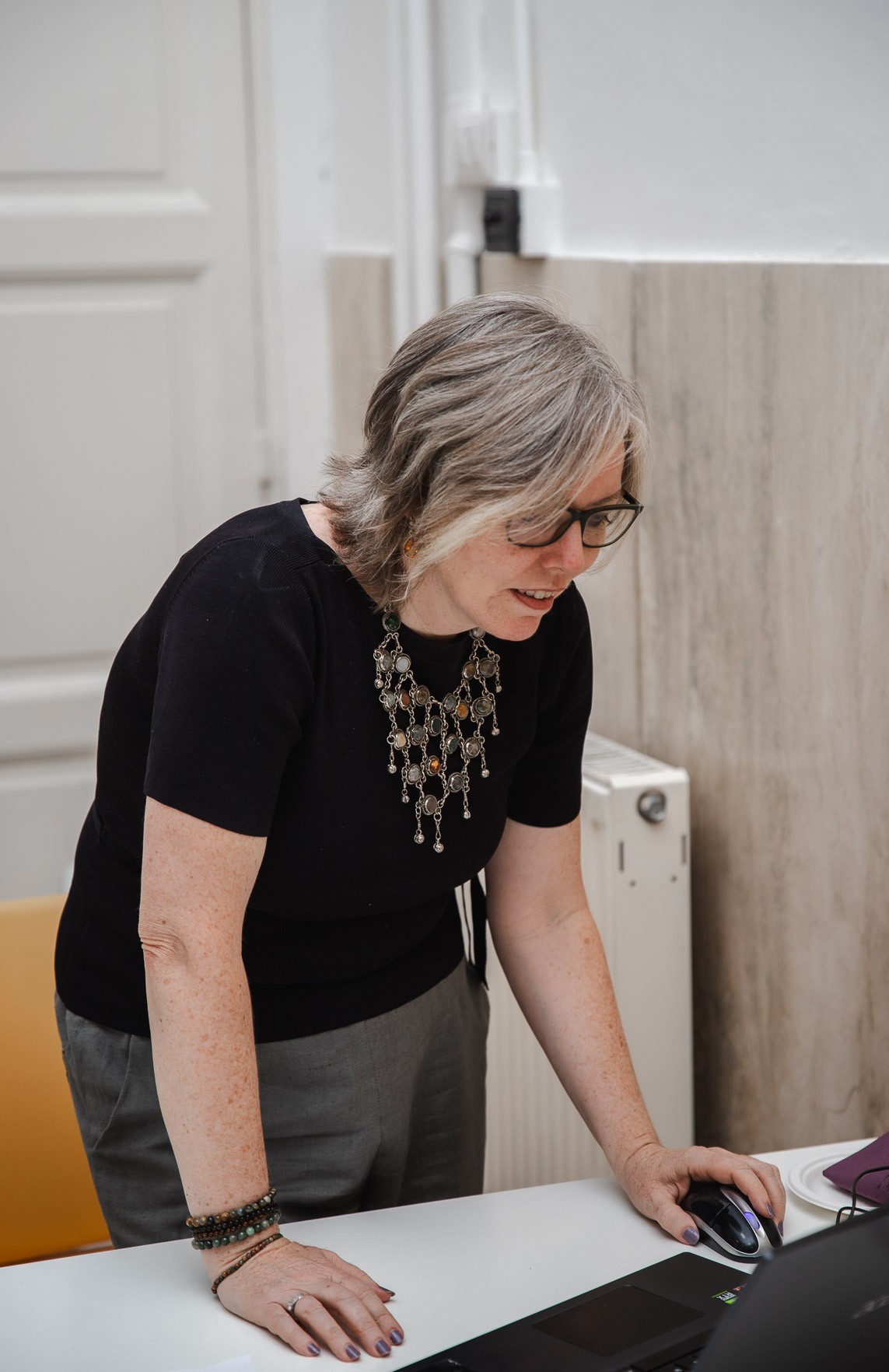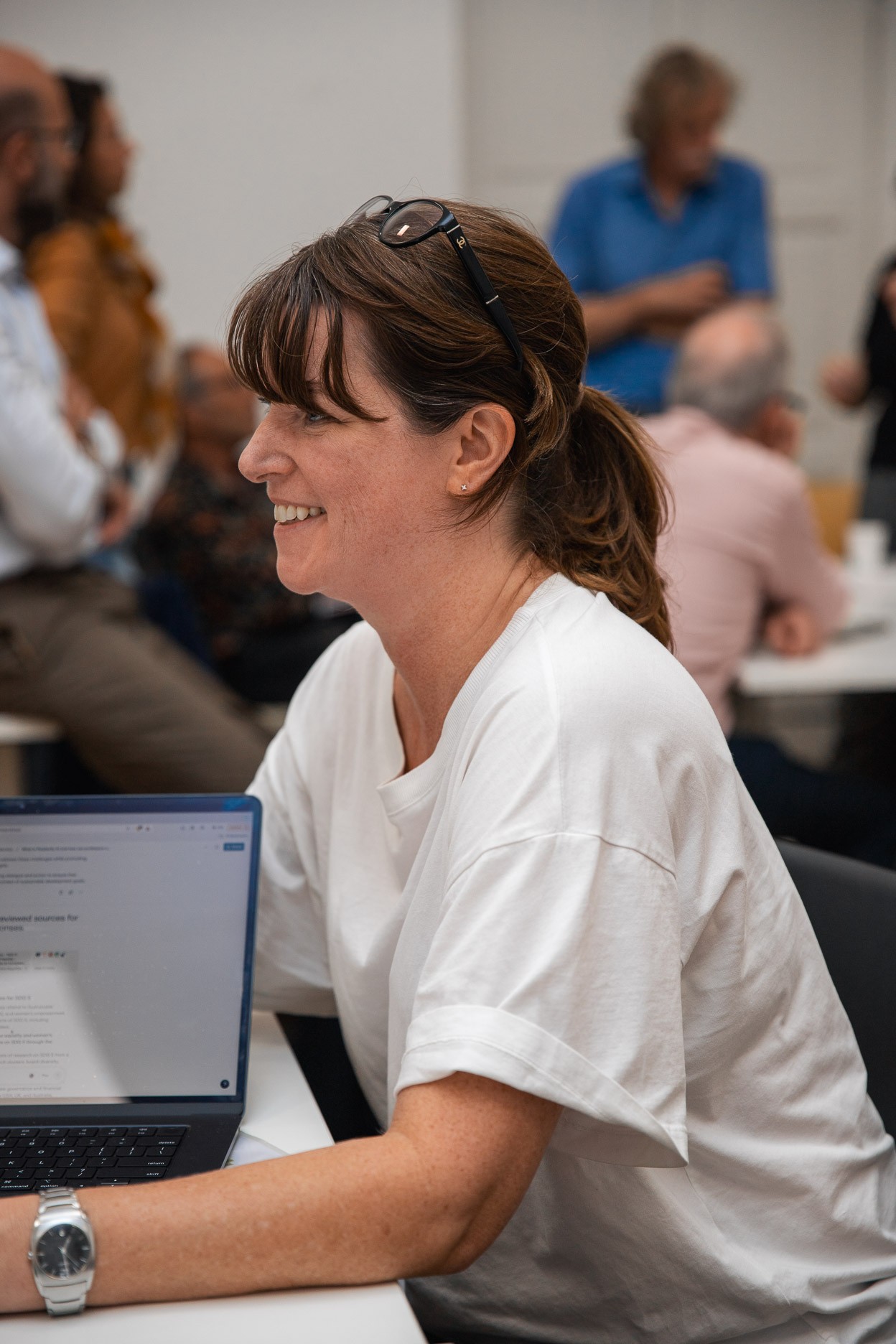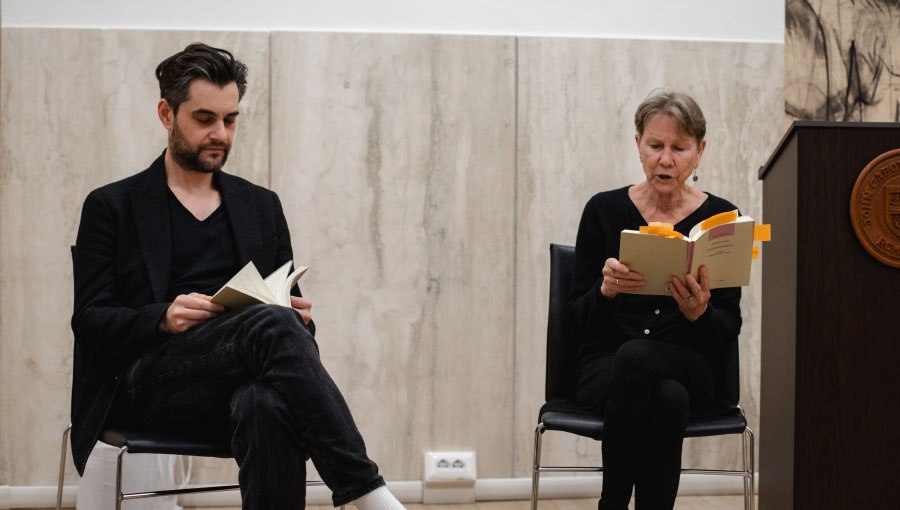JCU Hosts "Teaching and Writing with AI"
On Wednesday, September 18, 2024, John Cabot University hosted an event titled “Teaching and Writing with AI.” Sponsored by the Dean’s Office, the Elisabetta Morani Center for Teaching and Learning, the Frohring Library, and the Department of English Language and Literature, the event welcomed faculty members from all departments. It was designed for professors who assign writing in their courses to teach them about AI tools they can use in class to promote information and AI literacy among students.

The event served as an occasion to present a new innovative guide on teaching writing using AI tools, A Liberal Arts Guide to Academic Writing in the Age of AI: Crafting Meaning, Empowering Students, written by JCU Professors Tara Keenan, Christin Campbell, Theresa Lindo, Andrew Rutt, and Reference Librarian Nicoletta Romano. This project, supported by a grant from the Open Society University Network’s Liberal Arts and Sciences Collaborative, was published this Fall. The guide emphasizes the significant shift in education brought on by AI and large language models, making educators rethink their teaching methods. It includes practical lesson plans for English composition courses, focusing on critical thinking, reading, and writing. Moreover, it highlights the importance of moving from traditional long-form writing to collaborative, process-based projects, and encourages a liberal arts approach to explore the ethical implications of using AI.

The guide will be a great resource for composition professors, as it provides tips on how to integrate AI tools into their courses while maintaining the core values of a liberal arts education. According to Professor Keenan, the goal is to encourage students to thoughtfully use AI, incorporating it into their writing process to improve their work and foster critical thinking at the same time.
Professor Keenan emphasizes the need to move beyond “formulaic essay writing,” which AI can easily replicate. Professors should instead guide students into making deeper connections and finding their own critical voice. This novel way of looking at AI will allow students to explore new approaches to writing as a process, rather than just focusing on the final product.
The guide will offer practical strategies for professors to help students take advantage of AI so that it will not stand in the way of academic integrity but will support and enhance it. As the academic community adapts to new technology, events like this showcase JCU’s commitment to keeping up with educational trends and preparing students for the future.





